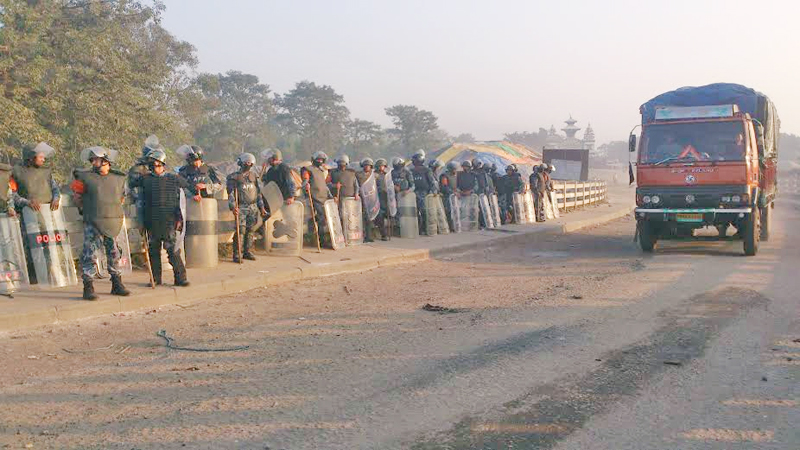At UN UPR session, India denies its role in supply obstructions to Nepal
KATHMANDU: India has once again denied its role in any obstruction in supplies to Nepal.
Taking part in the Universal Period Review of Nepal at the United Nations Human Rights Council session in Geneva of Switzerland, the Indian representative said, "Obstruction referred in the Hon’ble Minister’s statement is on Nepalese side caused by Nepalese protesters."
Earlier, speaking at the UPR session, Deputy Prime Minister and Minister for Foreign Affairs Kamal Thapa had described Nepal's current crises caused due to obstructions at border points.
READ ALSO:
"India, with deep rooted historic and cultural ties, will continue to extend all assistance to Nepal, for peace, stability and socio-economic development of the country," the representative said during the interaction.
"Problems facing Nepal are political in nature and cannot be resolved through force or a security-based approach," the representative reiterated.
Likewise, India urged the Government of Nepal to investigate and take credible measures to prevent recurrence of violence, extra-judicial killings and ethnic discrimination in the country.
"Violence and instability in many parts of Nepal has worsened in the run-up to and after the adoption of Nepal’s Constitution in September 2015," it remarked, "Over 45 persons died, mostly civilians, and hundreds injured. Firings, which had ceased just after the adoption of the Constitution, have reoccurred. We are concerned over the lack of political progress."
India's recommendations to Nepal
Meanwhile, the southern neighbour offered four recommendations to Nepal to address all challenges in a spirit of dialogue and reconciliation. They include:
(i) Consolidate the constitution building and democratisation process by accommodating all sections of Nepal to enable broad-based ownership and participation;
(ii) Ensure effective functioning of Truth and Reconciliation Commission and full implementation of its recommendations, including prosecution of those responsible for violent insurgency;
(iii) Ensure the independence and financial autonomy of the National Human Rights Commission, and
(iv) Set up an independent Commission for children and women.






